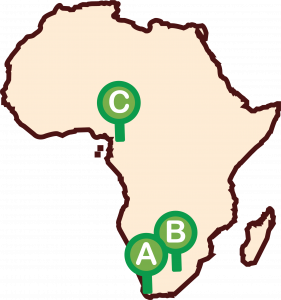Project Leads
The Problem
One of the key ethical challenges in genomics research is the little guidance available for whether and how individual genetic research results should be returned to research participants in the African continent. There is virtually no empirical data available describing the preferences and perspectives of the relevant African stakeholders including research participants, ethics committee members, and researchers, on these issues. Furthermore, there are contextual factors in African communities that impact decision-making regarding the return of individual genetic results.
Project Strategy
- Combine methodologies from medical genetics, bioethics, social science, bioinformatics, and health economics to collect empirical evidence from a wide range of stakeholders in both rural and urban settings in three Africa countries.
- Retrospectively investigate the effect of a genetic diagnosis of a monogenic condition on families and community members.
- Conduct a prospective study to explore the expectations and preferences of a wide range of stakeholders for feedback of individual genetic research findings.
- Act as an ethics resource for the H3Africa Consortium by developing an implementation guide for the Framework of Best Practices.
Outcomes to Date
The IFGeneRA Collaborative Centre generates and synthesizes evidence and insights from its various projects and work to develop a progressive evidence base that will inform the development of context and country specific policies for the return of individual genetic research results in genomics research in Africa. The investigators plan to liaise with regulators in various African countries to facilitate the adaptation of such policies in national regulation. Additionally, they plan to work with continental science organizations such as the African Academy of Sciences and the Alliance for the Acceleration of Excellence in Science in Africa for broader dissemination of their policies.



